India’s rich heritage is not only represented through its historical monuments and traditions but also through its artisanal crafts. One such craft that has made a significant impact in the global market is Chikankari, an intricate embroidery from Lucknow. Chikankari is now playing a vital role in supporting the ‘Made in India’ initiative, promoting Indian craftsmanship on a global scale.
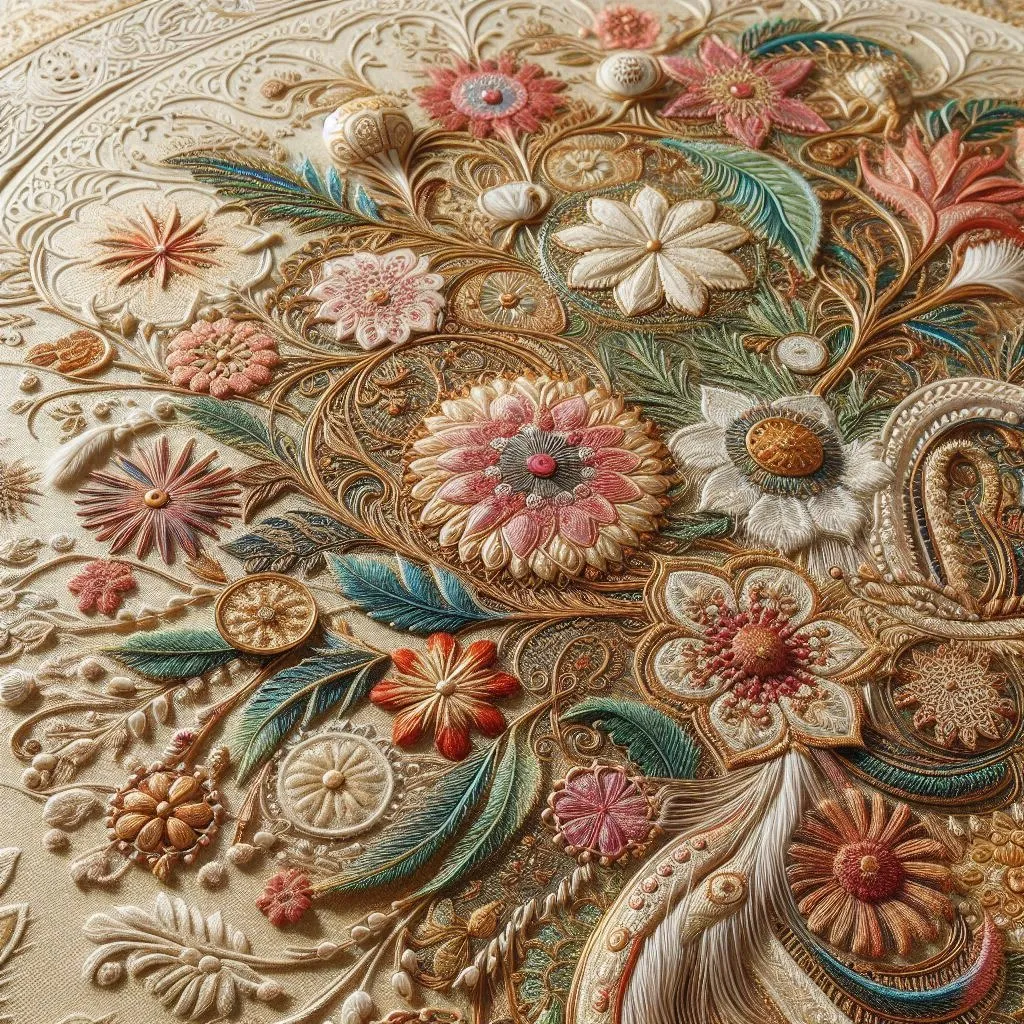
Growth in Chikankari Exports
According to Volza’s India Export data, India exported 1,037 shipments of Chikankari between March 2023 and February 2024. This reflects an impressive 84% growth compared to the previous year. February 2024 alone saw 76 export shipments, marking a year-on-year growth of 7% and a sequential increase of 21% from January 2024.
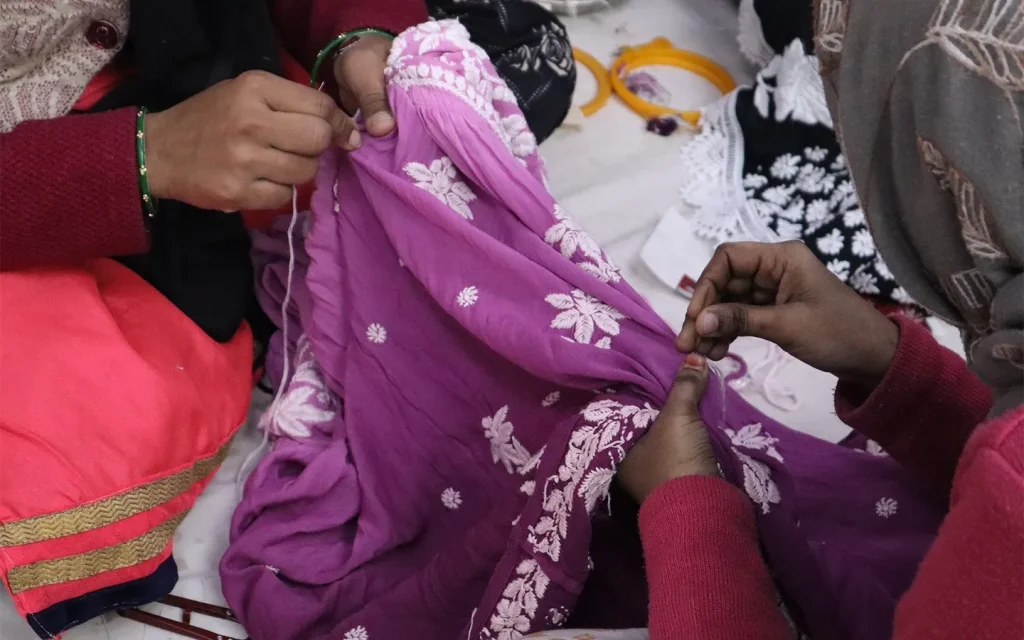
Chikankari’s primary export markets include the United States, United Arab Emirates, and Singapore, contributing significantly to the global demand for Indian hand-embroidered garments.
India’s Global Position in Chikankari Exports
India leads the global market for Chikankari exports, far outpacing other countries. With 3,202 shipments, India is the top exporter, followed by Singapore with 3 shipments and the United States with 2 shipments. This dominance underscores India’s leadership in preserving and promoting traditional crafts globally.
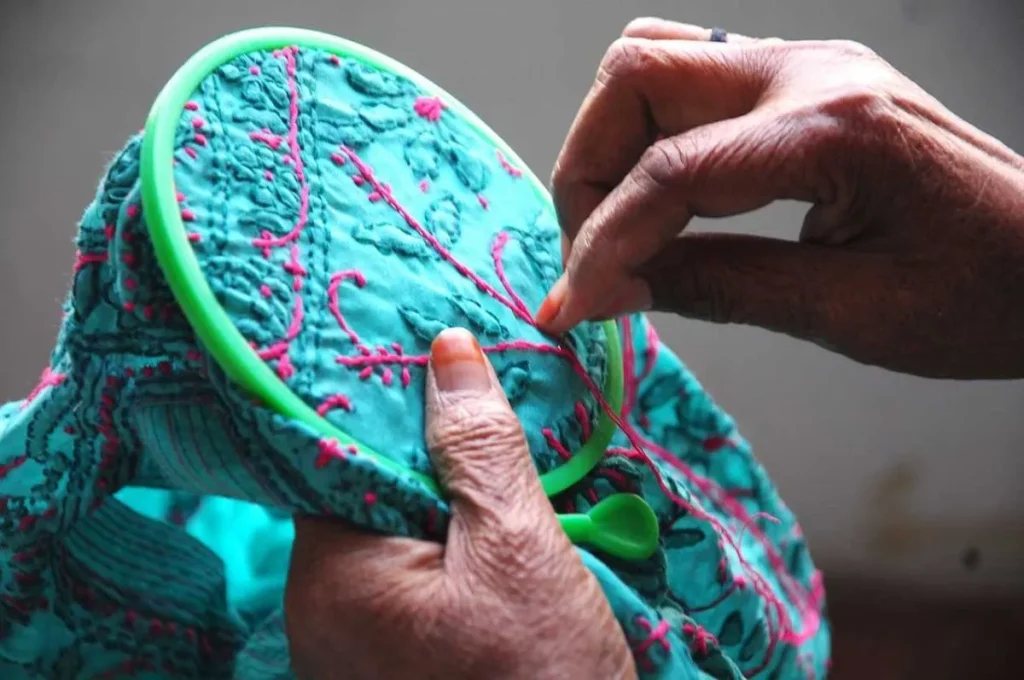
Contribution to the ‘Made in India’ Initiative
Chikankari embodies the essence of ‘Made in India’, reflecting the country’s dedication to preserving and promoting traditional crafts. As global demand for eco-friendly and handmade products grows, Chikankari has become a significant contributor to India’s textile exports. The export growth showcases India’s commitment to sustainable fashion and its ability to compete in international markets with high-quality artisanal products.
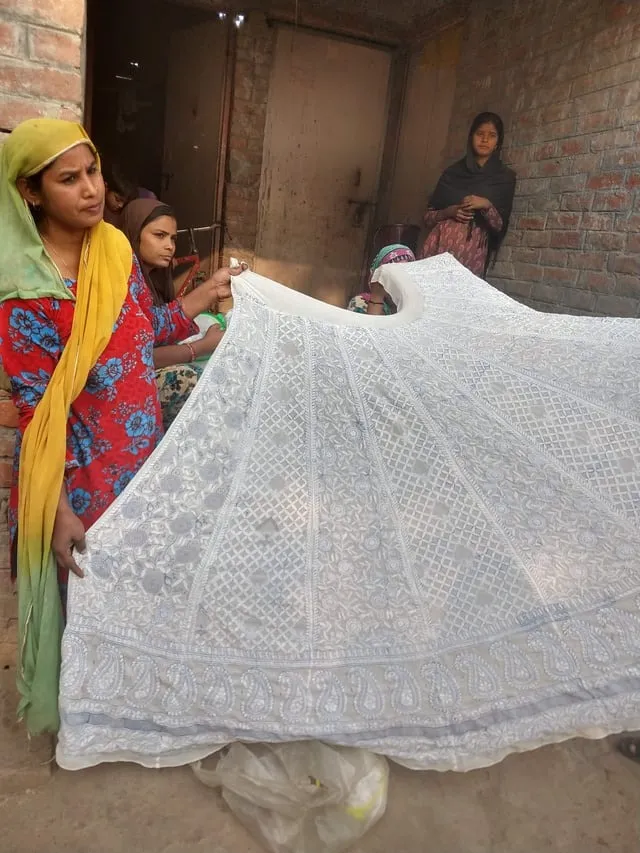
Government Support and ODOP Scheme
The Indian government has supported Chikankari through various schemes, notably the One District One Product (ODOP) initiative in Uttar Pradesh. The program aims to promote local crafts and provide employment opportunities in each district. Lucknow, known for its Chikankari, has benefited from this initiative, with efforts to enhance both production and export capacities.
Challenges and Opportunities for Chikankari
While Chikankari has seen significant growth, it faces challenges such as competition from machine-made products and the need for greater awareness of the craft’s authenticity. However, digital platforms present new opportunities for Chikankari artisans to reach global audiences and educate them about the value of handmade embroidery. With strategic marketing and innovation, Chikankari’s position in the global market can be strengthened further.
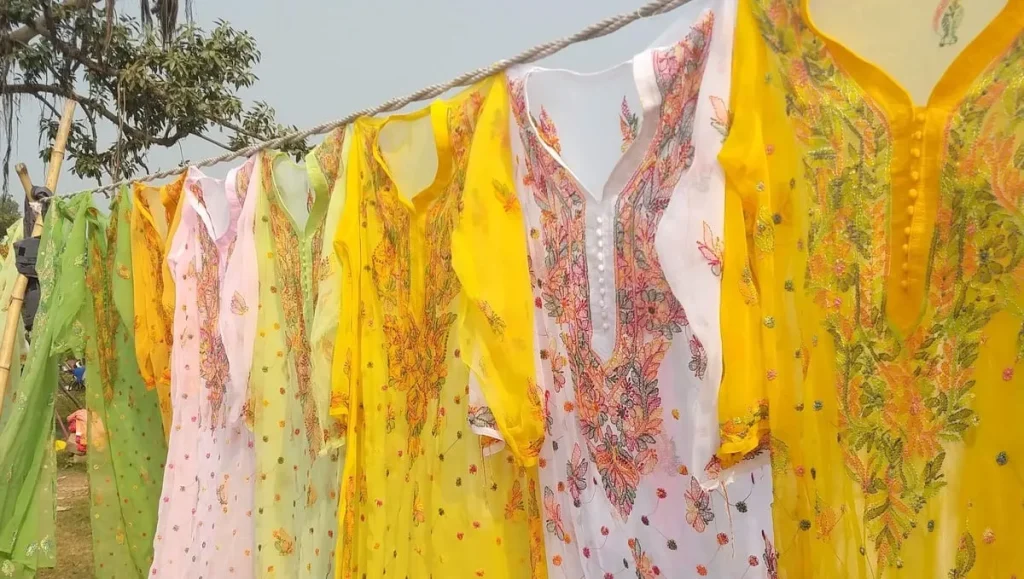
Future of Chikankari in the Global Market
The future looks promising for Chikankari, especially as sustainability continues to drive fashion trends. Collaborations between Indian artisans and international designers are opening new avenues, positioning Chikankari as a luxurious, eco-friendly option in global fashion. Moreover, the rise of e-commerce provides small businesses specialising in Chikankari the chance to expand their presence internationally.
Chikankari has become a symbol of India’s rich cultural heritage, making significant contributions to the ‘Made in India’ initiative. By capitalising on global demand for traditional, sustainable crafts and addressing market challenges, India can continue to elevate Chikankari’s presence worldwide, ensuring its continued success as a flagship of Indian artistry and craftsmanship.
